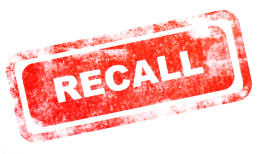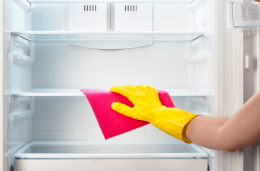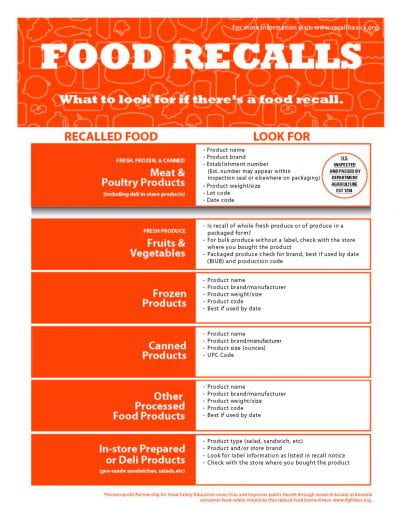
Food recalls happen almost daily for various reasons. But do you hear about them? Likely not unless it is a large amount of food or affects many people in multiple states. It is important to know that food recalls are issued because the problems can lead to illness or even death. Sometimes it is just an alert to inform consumers about potential health risks. Many times the source of a problem may not be readily identified.
Food recalls are issued for many reasons, including but not limited to:
- Bacterial contamination.
- Foreign objects in the food such as metal shavings or broken glass.
- Contamination by a major food allergen and not listed on the food label.
Many food companies voluntarily issue food recalls. Those notices will come from the companies. Others will go through CDC, USDA or FDA. More information can be found at www.foodsafety.gov/recalls-and-outbreaks.


